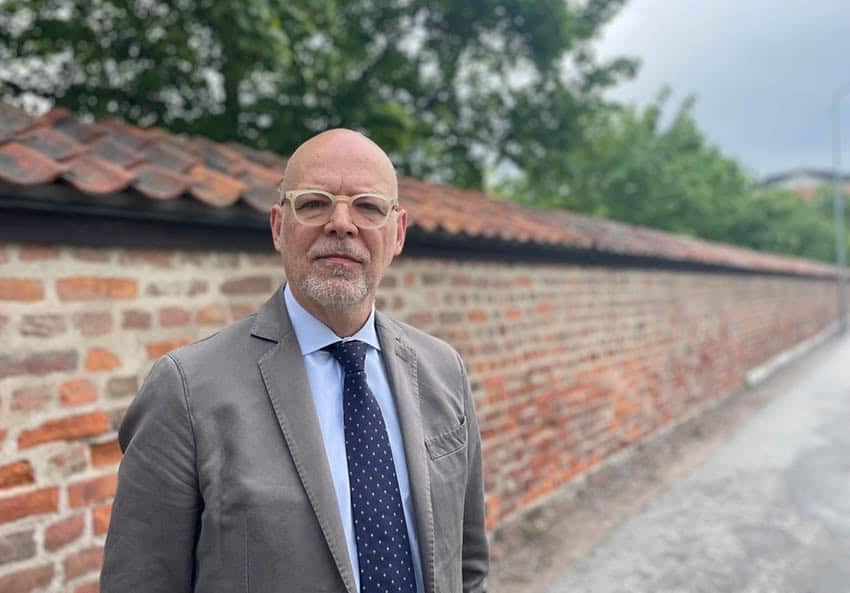The newspaper Arbetaren sent a questionnaire to Sweden’s nine largest universities.
It shows that rent increases are occurring at the expense of the universities’ core activities, and that a majority of the universities trace the problem of high rent costs to the yield requirement placed on Akademiska hus.
Akademiska hus is the state-owned property company that owns and manages most university and college real estate. Arbetaren writes that Akademiska hus is obliged to be run in a ”businesslike manner and yield competitive profits by adapting rents to the company’s business risk.”
The article goes on to say that last year the company made a profit of approximately SEK five billion, and that five of the nine universities surveyed want the profit yield requirement to be lowered.
Akademiska hus, for its part, claims that the company must follow the guidelines given by its owner, the state. Peter Anderson, the head of finance at Akademiska hus, tells Arbetaren that the company cannot do anything about the profit yield requirement.
”It was given to us by the Swedish state, which also requires us to function as a business, and that means setting market-level rents. So it is governed by our stated mission,” he says.
In reply to a question from the newspaper about whether the profit can be used to lower the rents, Anderson replies ”No, our mission doesn’t allow that”.
Debate about rents
As most higher education institutions’ rents are linked to an annual index calculation, they have increased sharply in the past year as inflation has risen. Akademiska hus’ rent levels were therefore the subject of much debate even before the Arbetaren article was published.
In a Universitetsläraren article last spring, the National Union of Students, SFS, demanded that Akademiska hus’ profit requirement should be abolished; in September, the chairs of three university boards wrote an opinion article in the Swedish national daily newspaper Svenska Dagbladet saying that it is not reasonable to demand back so much of the funding for education and research through rent costs; and a month later, the Young Academy of Sweden also wrote in Svenska Dagbladet that the universities’ money should be used for research and education, not to pay ”market” rents to a profit-making state enterprise.
”Impacts education”
Several universities wrote in their survey responses that the rent increases have made it more difficult for institutions to afford the rent for teaching rooms.
One of the university departments hit hard by increased rents is the Department of Economic History and International Relations at Stockholm University. There, the department board planned to move lessons to Zoom temporarily in the spring to reduce costs, but in the end, they were able to avoid that solution.
“But that does not mean that the rent increases are not a problem,” says Head of Department Magnus Petersson.

Magnus Petersson
Head of Department of Economic History and International Relations, Stockholm University
“I work on the front line, and that is where you see the effects. Ultimately, it impacts the students’ education, primarily because it is the only cost we can cut in the short term. In concrete terms, it means fewer classroom hours for the students. And we already think that we have too few teaching hours,” he says.
Deteriorating work environment for teachers
He believes that the reduction in quality brought about by fewer teacher-led hours is a problem for Sweden as a country. “The biggest problem is that it leads, not immediately but gradually, to a lowering of the level of education among the population. And when the rents are increased,” he adds; “it also impacts the staff, as we need to crowd together to reduce premises costs. So it’s not just about the students; it’s also about a deteriorating work environment for teachers.”
Concerns about quality
Lars Geschwind, Executive Director of SULF, says “I completely understand that there is debate about this issue. It flares up when times are a little tougher. Funding is going down and savings have to be made, and on top of this we have the rent system.”

Lars Geschwind
Executive Director of SULF
“The concern for us at SULF, and for many others, is that there are more and more signs of enormous pressure on universities and colleges. That they need to rationalise, move, find cheaper premises. That affects their core activities. These signs need to be taken seriously, and from our perspective the greatest concerns are for our members, their working environment and, ultimately, the quality of education and research.”
On the matter of Akademiska hus’ rents, SULF is more cautious. “SULF has perhaps not quite reached a position on that issue. However, SULF can see that the model itself is problematic, but it is part of a larger issue about the relationship between the state and universities, and ultimately about how the sector should be governed,” says Geschwind.
Requested compensation
Peter Liljenstolpe, campus manager at Mälardalen University, is chair of the Association of Swedish Higher Education Institutions’ (SUHF) expert group on real estate and security issues. “Increased rents obviously impact universities and colleges in a negative way,” he says, and explains that last year SUHF submitted a request to the government for higher education institutions to be compensated for the increase in premises costs ahead of the 2023 budget year, as a permanent reinforcement measure in order to be able to maintain the quality of education and research. But SUHF did not receive a response to its request.
“At the same time, this is an incredibly complex issue,” Liljenstolpe continues, “and I think it’s a shame that the reporting easily becomes very one-sided.”
He points out that the mission of Akademiska hus mission is to own, develop and manage premises for universities and colleges and that it must operate in a business-like manner. “And the company has to work that way. Competition law doesn’t allow Akademiska hus to subsidise our rents. Then they would be competing on entirely different terms than other property owners in the sector can.”
“It’s easy to take aim at Akademiska hus, but I think that’s unfair. They have their instructions, just like we have in our appropriation documents. This is something that the government needs to change,” says Liljenstolpe.
Universitetsläraren has sought Education Minister Mats Persson for comment, as well as the chair of the parliament’s Standing Committee on Education, Fredrik Malm, and the deputy chair, Åsa Westlund.
The newspaper Arbetaren also writes that it has tried to contact politicians at the Ministry of Finance, under which Akademiska hus falls, for a response to its survey and article. However, Finance Minister Elisabeth Svantesson’s press secretary referred the newspaper to the Financial Markets Minister, Niklas Wykman, who in turn referred the reporter back to the Finance Minister.


















